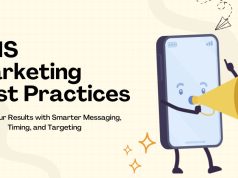Starting an SMS marketing business is a profitable opportunity in a growing industry. By focusing on a niche, ensuring compliance, and delivering measurable results, agencies can build strong client relationships and scale effectively. The right strategy, technology, and communication are key to long-term success.
Understanding the SMS Marketing Landscape

Before diving into the business setup, it’s crucial to understand what SMS marketing entails and why it’s so effective. SMS marketing involves sending promotional messages, alerts, and updates directly to customers’ mobile phones via text message.
The power of SMS lies in its immediacy and personal nature. Unlike emails that might sit unread in an inbox for days, text messages are typically read within minutes of being received. This makes SMS marketing particularly valuable for time-sensitive offers, appointment reminders, and urgent communications.
The industry serves various sectors including retail, healthcare, restaurants, real estate, and e-commerce. Each sector has unique needs and compliance requirements, which creates opportunities for specialized SMS marketing services.
Market Research and Niche Selection
Successful SMS marketing businesses rarely try to serve everyone. Instead, they focus on specific niches where SMS delivers clear, immediate value. Choosing the right niche early helps reduce competition, simplify messaging, and attract clients who already understand the need for fast, direct communication.
Market research should start with identifying industries that rely on repeat customers, appointments, or time-sensitive offers. Businesses in sectors like restaurants, healthcare, real estate, and e-commerce often struggle with customer engagement and no-shows, making SMS an effective solution. Understanding these pain points allows you to position your services as a practical answer to real business problems. You can also check how to use SMS marketing: a complete guide for businesses to see real-world examples.
It’s also important to evaluate existing competition and market gaps. Many providers offer generic, low-cost SMS services without strategy or analytics. This creates opportunities for agencies that emphasize personalization, compliance, and measurable results. By focusing on a niche you understand or have access to, you can establish credibility faster and build stronger, longer-lasting client relationships.
Consider these high-demand niches:
- Local restaurants and food delivery services
- Healthcare providers and dental offices
- Real estate agents and property managers
- E-commerce businesses
- Fitness centers and wellness providers
- Auto dealerships and service centers
Research your chosen niche thoroughly. Look at existing SMS marketing providers serving these businesses, analyze their pricing, services, and customer reviews. Identify gaps in the market that your business could fill.
Survey potential clients to understand their current marketing challenges. Many small businesses struggle with customer retention and engagement, making them ideal candidates for SMS marketing solutions.
Legal Requirements and Compliance
SMS marketing is highly regulated, and compliance is essential for protecting both your business and your clients. In the United States, the Telephone Consumer Protection Act (TCPA) and the CAN-SPAM Act define how businesses can collect consent, send messages, and manage opt-outs. Ignoring these rules can lead to heavy fines and legal issues. Our article on is SMS marketing legal explains the rules in detail.
Consent is the foundation of compliant SMS marketing. Customers must explicitly agree to receive messages, and every message must include a clear opt-out option. Opt-out requests must be honored immediately. In addition, mobile carriers enforce their own messaging standards, which affect delivery and content. For agencies working with international clients, regulations like GDPR may also apply, making compliance a critical part of any professional SMS marketing service.
Key compliance requirements include:
- Obtaining explicit consent before sending marketing messages
- Providing clear opt-out instructions in every message
- Maintaining records of consent and opt-out requests
- Honoring opt-out requests immediately
- Including your business identification in messages
Familiarize yourself with regulations in your target markets. International clients may be subject to different rules, such as GDPR in Europe. Consider consulting with a legal professional who specializes in marketing compliance to ensure your business practices meet all requirements.
Business Structure and Registration
Choose an appropriate business structure for your SMS marketing business. Most entrepreneurs opt for a Limited Liability Company (LLC) or corporation to protect personal assets and provide tax benefits.
Register your business name and obtain necessary licenses. While SMS marketing businesses typically don’t require special licenses, you’ll need general business licenses and potentially sales tax permits depending on your location.
Set up business banking accounts and accounting systems from the start. This separation between personal and business finances is crucial for tax purposes and professional credibility.
Managing Client Expectations and Communication

Clear and consistent communication is one of the most critical factors for long-term client satisfaction in an SMS marketing business. From the very first conversation, it’s essential to set realistic expectations regarding what SMS marketing can achieve, how quickly results can appear, and which key performance indicators (KPIs) define success. Many clients expect instant revenue growth or viral campaign performance, but SMS marketing is most effective when approached strategically and measured over time. Misaligned expectations can lead to frustration, even if campaigns are performing well, which may result in early churn or strained relationships. Learn more in how to send marketing SMS: a complete guide.
To maintain alignment, agencies should establish structured communication routines. Regular check-ins, performance reviews, and progress updates create transparency and build trust. Sharing insights about subscriber engagement, click-through rates, and conversion trends not only demonstrates accountability but also educates clients on the value of strategic messaging. Proactive communication—informing clients of potential risks, opportunities, or recommended adjustments before they notice issues—positions your agency as a trusted partner rather than just a service provider.
Additionally, managing client expectations involves helping them understand the importance of list hygiene, segmentation, and campaign timing. Explaining why sending too many messages can hurt engagement, or why personalization drives better results, helps clients see the reasoning behind your strategies. When clients feel informed and supported, they are more likely to view your agency as an extension of their team, leading to stronger retention, higher referral rates, and more successful long-term partnerships.
Positioning Your SMS Marketing Business as an Authority
In today’s competitive digital marketing landscape, positioning your SMS marketing business as an authority is key to standing out and attracting high-value clients. Businesses naturally gravitate toward agencies that not only offer services but also demonstrate expertise, provide insights, and guide strategic decision-making. Authority is built by consistently delivering educational content, sharing case studies that highlight measurable results, and offering thought leadership on trends in SMS marketing, customer engagement, and compliance.
Authority positioning does more than attract clients—it directly impacts your pricing power and client loyalty. Agencies that are recognized as experts can justify premium pricing because clients trust their recommendations and are willing to invest in proven strategies. Sharing insights about emerging technologies, like AI-driven messaging automation or Rich Communication Services (RCS), shows clients that your agency is forward-thinking and capable of leveraging innovations for their benefit.
Developing authority also involves participating in industry conversations, networking with peers, and providing public resources such as blog posts, webinars, or guides. These efforts create credibility before a formal sales discussion even begins, making clients more receptive to your proposals and long-term strategies. Over time, a strong reputation not only attracts new clients but also fosters repeat business, referrals, and opportunities for collaboration, turning your SMS marketing business into a recognized leader in the industry.
Technology and Platform Selection
Your choice of SMS marketing platform will significantly impact your business operations and service quality. Research platforms that offer:
- Reliable message delivery
- Comprehensive analytics and reporting
- API access for custom integrations
- Compliance tools and features
- Scalable pricing structures
- Customer support
Popular platforms include Twilio, TextMagic, SimpleTexting, and EZ Texting. Many successful agencies use white-label solutions that allow them to brand the platform as their own service.
Consider the technical requirements for your business. Will you need custom software development, or can you work with existing platforms? Factor in integration capabilities with popular CRM systems, e-commerce platforms, and other business tools your clients might use.
Service Offerings and Pricing Strategy

Define your service offerings clearly. Most SMS marketing businesses provide:
- Campaign strategy and planning
- Message creation and copywriting
- List management and segmentation
- Campaign execution and monitoring
- Performance analytics and reporting
- Compliance management
Consider offering additional services like:
- Social media integration
- Email marketing coordination
- Customer database management
- Marketing automation setup
- Training and consultation
Develop a pricing strategy that reflects the value you provide while remaining competitive. Common pricing models include:
- Monthly retainer fees
- Per-message pricing
- Percentage of client revenue
- Project-based pricing for setup and strategy
Research competitor pricing and survey potential clients about their budget expectations. Many businesses are willing to pay premium prices for SMS marketing services that deliver measurable results.
Building Your Client Base

Start building your client base before officially launching your SMS marketing business. Reach out to your professional network and connect with local businesses that could benefit from direct, high-engagement communication. Offering free or discounted services to early clients can help you build case studies, testimonials, and real-world results that strengthen your credibility.
As you gain experience, focus on demonstrating clear value through measurable outcomes such as increased engagement, repeat visits, or revenue growth. Strong results and social proof will make it easier to attract new clients and scale your business with confidence.
Develop a strong online presence through:
- Professional website with case studies and testimonials
- LinkedIn networking and content sharing
- Local business networking events
- Industry conferences and trade shows
- Content marketing showcasing your expertise
Create compelling proposals that demonstrate the potential ROI of SMS marketing. Use statistics and case studies to show how SMS marketing can increase customer retention, drive sales, and improve communication efficiency.
Operations and Workflow Management
Efficient operations are essential for running a scalable SMS marketing business. From the moment a new client signs on, you should have clear workflows in place for onboarding, campaign setup, approval, and ongoing management. Well-defined processes reduce errors, save time, and ensure every client receives a consistent level of service.
Documenting your workflows is especially important as your business grows. Standardized procedures for message creation, compliance checks, scheduling, and performance reporting make it easier to manage multiple campaigns at once. Clear reporting routines also help clients understand results and reinforce the value of your services, allowing you to scale without sacrificing quality.
Key operational components include:
- Client intake and needs assessment procedures
- Campaign planning and approval workflows
- Message creation and review processes
- Performance monitoring and optimization protocols
- Regular reporting and communication schedules
Invest in project management tools to keep track of multiple client campaigns and deadlines. Tools like Asana, Monday.com, or Trello can help organize your workflow and ensure nothing falls through the cracks.
Team Building and Scaling
As your SMS marketing business grows, you’ll need to build a team. Start by identifying the skills you need most:
- Account management and client relations
- Creative copywriting and campaign development
- Technical implementation and platform management
- Data analysis and reporting
- Sales and business development
Consider starting with freelancers or part-time employees to manage costs while building revenue. As you establish recurring revenue streams, you can bring team members on full-time.
Measuring Success and ROI
Develop clear metrics to measure both your business success and client campaign performance. Track key performance indicators such as:
- Client retention rates
- Campaign open and click-through rates
- Revenue generated for clients
- Monthly recurring revenue growth
- Client acquisition costs
Create comprehensive reporting systems that demonstrate value to your clients. Regular reporting builds trust and justifies your fees while identifying opportunities for campaign optimization.
Taking Your First Steps Forward
Starting an SMS marketing business requires careful planning, compliance awareness, and a focus on delivering measurable results for clients. The combination of high demand, proven effectiveness, and growing mobile usage makes this an attractive business opportunity for entrepreneurs willing to invest in proper setup and execution.
Begin by conducting thorough market research in your chosen niche, then focus on building a solid foundation with proper legal compliance, reliable technology platforms, and efficient operational processes. As you build your client base and demonstrate results, you’ll be well-positioned to scale your SMS marketing business into a profitable venture.
Remember that success in SMS marketing comes from understanding your clients’ businesses and creating campaigns that genuinely engage their customers. Focus on building long-term relationships rather than quick wins, and your SMS marketing business will thrive in this growing industry.
In today’s fast-evolving digital landscape, businesses are constantly seeking smarter, more efficient ways to reach and convert their audiences. Whether you’re interested in learning how to start an SMS marketing business from the ground up or you’re exploring how data analytics can transform your affiliate marketing efforts, mastering these strategies can significantly boost your marketing performance. Each approach offers unique advantages—SMS marketing provides direct and immediate communication, while data-driven affiliate marketing helps refine targeting and maximize ROI. Exploring both can help you build a more comprehensive and effective marketing plan.
Frequently Asked Questions (FAQ)
Do I need a special license to start an SMS marketing business?
Most SMS marketing businesses don’t require specialized licenses. However, you must comply with local business registration requirements, general business licenses, and any industry-specific regulations for your clients.
How much does it cost to start an SMS marketing agency?
Startup costs can vary based on technology investment, marketing, and staffing. You can start with as little as a few hundred dollars using white-label SMS platforms, but scaling may require additional investment in automation tools, analytics software, and team members.
Can SMS marketing work for small businesses?
Absolutely. Small businesses often benefit most because SMS campaigns deliver high engagement, immediate response, and measurable ROI. Even a single-location restaurant or boutique can see significant customer retention improvements using SMS marketing.
How do I measure success in SMS marketing campaigns?
Track KPIs like open rates, click-through rates, conversion rates, revenue generated, and client retention. Combining these metrics with CRM insights can help optimize campaigns and demonstrate clear ROI to clients.
What industries are best suited for SMS marketing?
Retail, e-commerce, restaurants, healthcare, real estate, and fitness are excellent sectors. However, any business that benefits from timely, direct customer communication can leverage SMS marketing effectively.
How can I differentiate my SMS marketing business from competitors?
Offer value-added services such as personalized campaign strategy, integration with other digital channels, robust analytics, compliance consulting, and creative messaging solutions. Providing exceptional client support and clear reporting will also help your agency stand out.







